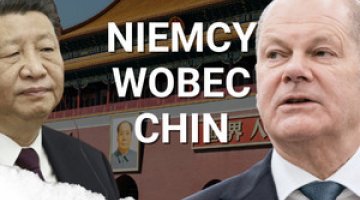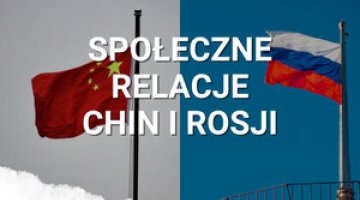Chinese medical equipment supplies to Europe
In the second week of March, the Chinese government managed to bring local outbreaks of the COVID-19 epidemic under control, and on the national scale, the number of new infections has remained at the level of a few dozen symptomatic new cases daily. Reduced local demand led to excess production capacity for medical resources, some restrictions on commercial exports have also been lifted. China has launched an image-building and diplomatic campaign addressed to other countries trying to overcome the pandemic. Simple surgical masks (intended for those already infected) and to a lesser extent N95 face masks (which reduce the risk of infection), protective clothes and quick tests for coronavirus presence predominate among the products being exported. A small number of ventilators have been despatched, and medical personnel have been sent to Italy (mainly for research purposes rather than for direct support). Over the past few months, China has received substantial material aid from many countries across the globe (including the EU), and has purchased significant amounts of medical equipment abroad, thus depleting the global stocks.
The medical equipment is being supplied both commercially (on the grounds of orders submitted by the customer countries) and also as an element of non-repayable aid. The supplies are being sent via various channels to foreign partners, above all Europe (which has been severely affected by the pandemic), and also to Iran and African and Asian countries amongst other destinations. The material supplies are being accompanied by a vast promotional action (also in the English-language and social media) and diplomatic activity in which the political leaders of the customer states and local communities are engaged. In general, commercial supplies and non-repayable aid are not properly distinguished; in Chinese publications and media broadcasts it is all referred to as ‘support’ or ‘aid’ for foreign countries, which European media have criticised as misleading public opinion. The commercial supplies are usually facilitated by China’s Ministry of Foreign Affairs or negotiated during direct talks between national leaders. Non-repayable aid is provided via several channels: through state institutions, the Red Cross Society of China, private Chinese foundations (including Jack Ma’s Alibaba Foundation), Chinese local governments, Chinese diaspora associations and other entities.
So far the medical aid from China to Europe is still smaller than the aid China had received from EU member states. More advanced equipment is usually supplied commercially. The biggest non-repayable aid offered so far includes transports to Italy carried out by the Red Cross Society of China, which were accompanied by a delegation of 18 Chinese doctors. In addition to this, the Alibaba Foundation controlled by the Chinese billionaire Jack Ma has been especially active in Europe focusing on supplies of face masks and test sets to various countries (including Spain, Belgium, France, Ukraine and Slovenia). At present, commercial supplies of equipment to Italy and non-repayable aid to other European countries are being negotiated with China’s Ministry of Foreign Affairs. An order worth €432 million is being implemented by Spain, and large commercial supplies are being organised by the governments of the Czech Republic, Hungary, France (jointly with the LVMH company) and Poland, among other countries which have ordered significant amounts of medical equipment from China and are importing it with their own air transports.
Commentary
- China has experienced a mass increase in the production capacity of medical equipment, resulting from a government policy that stimulated the opening of new production lines by Chinese companies. Although the output of simple face masks has increased rapidly (at present, around 115 million daily), in the case of N95 masks the daily output currently remains at the level of around 1.66 million, mainly due to shortages in the supplies of the advanced materials. The launching of new production lines by various companies which previously had no links with medical industry generates problems with quality (inadequate or forged certification). As a result, the Spanish government had to withdraw from use some defective tests it bought from China in the last days of March, and Holland has recalled a batch of face masks made in China. The defective results of quick tests of the same origin have provoked some controversies in the Czech Republic. However, according to the Czech government, this was a result of them being improperly used at the initial stage of the disease. The falling domestic demand in China has led to a drop in the prices of medical materials, and so some local governments have decided to promote commercial exports of these materials to maintain the previous production levels. China’s export capacity as regards other critical resources, including respirators, tests for coronavirus presence and protective suits is difficult to assess at the moment.
- China’s political goals linked to its supplies of medical equipment are focused on building up the country’s image as a global leader and promoting Chinese experience in combating the virus. In this way the Chinese government is trying to reduce the reputational losses resulting from concealing the epidemic in Wuhan during the first weeks of the outbreak, while at the same time capitalising politically on other countries’ interest in its experience in counteracting COVID-19. Chinese science and traditional Chinese medicine are also being promoted as methods supporting the treatment process. The official narrative promoted in Europe is relatively moderate, and is focused on the positive aspects of co-operation. It emphasises that China is reciprocating the aid it had received before, building a “community of a shared future for mankind” promoted by Xi Jinping. However, some Chinese media have begun building a narrative that the virus originated in Italy, thus provoking serious controversies in European mass media. On unofficial channels (foreign social media) information on supplies is accompanied by active discrediting of the US as a global leader, picturing it as being unable to counteract the pandemic at home and abroad.
- The Chinese supplies to European countries in the first half of March provoked huge controversies in Europe, as some political forces took advantage of the situation to present EU institutions as too passive with regard to the health crisis in the member states, and to criticise the restrictions on medical equipment exports inside the EU. An aircraft carrying nine Chinese doctors and materials donated by the Red Cross Society of China to its Italian equivalent landed on 13 March in Italy. This was accompanied by a propaganda campaign launched by the Chinese media and China’s embassy in Rome. At the time, the Chinese and Italian ministers of foreign affairs, Wang Yi and Luigi di Maio, were discussing commercial supplies of equipment, including one thousand respirators for Italian hospitals. Some European media started to present these facts as proof of the EU’s passivity, the harmfulness of the restrictions on exports from other EU countries to Italy (which were in force at that time) and the passivity of the US. This effect was further strengthened by the fact that the message presented by the Chinese media and the statements made by di Maio failed to make a clear distinction between the aid offered by the Red Cross Society of China (relatively modest, consisting of 50 respirators amongst other products) and the large commercial supplies to Italy that were being negotiated. The Prime Minister of Serbia, Aleksandar Vučić, also capitalised politically on the Chinese supplies as he began criticising the EU for the restrictions on exports of medical equipment, using this as an opportunity to consolidate political relations with China. Angela Merkel and Ursula von der Leyen have also reacted to the situation that has developed around the supplies to Italy. The two leaders emphasised that the Chinese gestures were an expression of gratitude for the aid previously offered to China by the EU. Soon thereafter Germany launched its own supplies of medical equipment to Italy, which was preceded by the European Commission’s intervention aimed at repealing export restrictions inside the EU. On 24 March Josep Borrell, the High Representative of the European Union for Foreign Affairs and Security Policy, asked the member states to be cautious about China’s “politics of generosity” and its geopolitical context.
- The diplomatic and reputation-building effects of China’s medical supplies to Europe are considerable, regardless of the relatively low scale of medical equipment supplies. This is proof that Chinese propaganda campaigns in Europe are increasingly effective, partly because of the development of the official and unofficial communication channels in Western social media. However, the strength of the Chinese message has been undermined by the diplomatic attempts to politically capitalise on the supplies of medical aid, which have been criticised by EU leaders, as well as the problems with the quality of the equipment supplied from China. China’s official political agenda is focused on promoting mutual trust with EU countries and building up its soft power. However, given the deteriorating diplomatic relations between China and the USA, it cannot be ruled out that Beijing will use the supplies to Europe as a way to undermine trans-Atlantic relations and to make more open attempts at playing EU member states off against each other to undermine the community’s unity over selected issues. The scale of Chinese supplies – both commercial and as part of material aid – will certainly grow, even though they will be limited due to China’s domestic needs, linked to the risk of new COVID-19 outbreaks emerging in the country. In the short run, China (one of the few large suppliers to have the epidemiological situation under control) will use its supplies of medical equipment as a major political tool. In the long run, the EU and the US will take action to reduce their reliance on Chinese supplies and to transfer the production of the strategic materials closer to their domestic markets.





